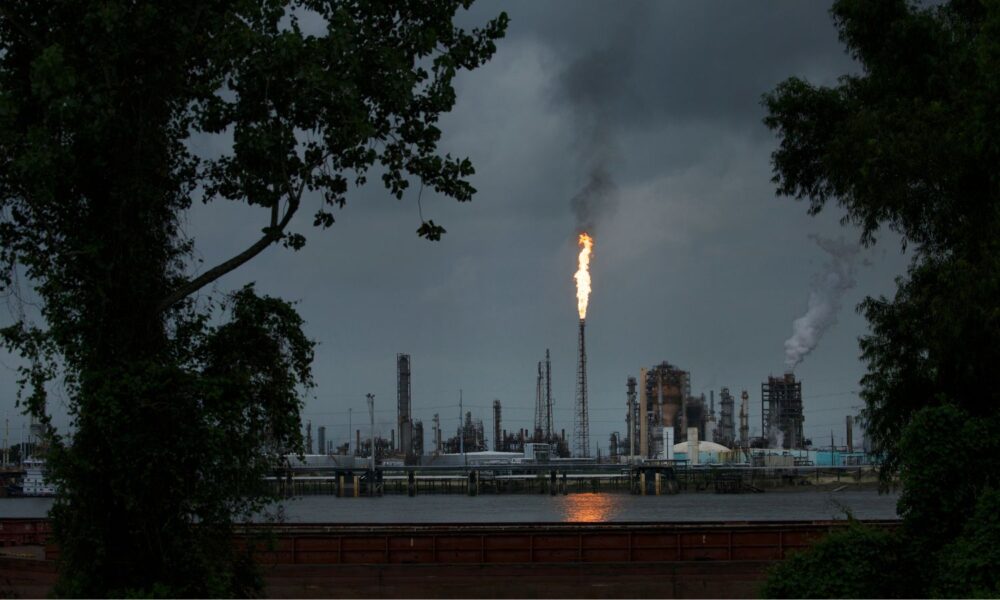“Here’s your gag order, have a good weekend!”
…that was the gist of the Dean’s email that restricted communications from Tulane University’s Environmental Law Clinic, where I worked as a research scientist. While the dean refused to admit that it was a gag order, she unilaterally informed me and my clinic colleagues that all external communications now required her pre-approval. That meant that I could no longer freely speak to the public, the media, partner organizations, or colleagues outside of Tulane. I suddenly found myself in professional purgatory, stripped of academic freedom. Needless to say, I did not have a good weekend.
To me, the impetus for this order was obvious. My recently published study had exposed “uncomfortable” truths about the petrochemical sector, and the university considered it an “impediment” to ongoing fundraising efforts. While the backlash didn’t surprise me, I never imagined that my study would trigger a university-wide attack on academic freedom.
The numbers don’t lie
The uncomfortable truth in this case was simple arithmetic. My coauthors and I found that the fraction of White people in petrochemical jobs was exceedingly high compared to the local populations where petrochemical facilities operate. Regardless of whether you crunch the data by state, county or metropolitan area: people of Color don’t get their fair share of petrochemical jobs, especially the higher-paying ones. People of Color in U.S. petrochemical manufacturing plants are far more likely to be laborers or helpers than operators, administrators, technicians, or managers.
Pro-industry groups have typically responded to the issue of racial employment inequity by calling for investment in education and training. But our study debunked that narrative: racial disparities in U.S. petrochemical jobs are generally too large to be explained by education gaps. For example, fewer than one in five petrochemical professionals in St. John the Baptist Parish are people of Color, despite this demographic being a majority (69%) of the local population and having almost no education gap. (In this county equivalent, 16% people of Color hold a college degree, versus 18% of Whites.) These numbers challenge the longstanding idea of a “pollution for jobs” tradeoff and cast a new light on my previous research, which found that toxic air pollution contributes to Louisiana’s burden of cancer, unhealthy births, and COVID-19 mortality.
Academic freedom for some
By coincidence, this jobs study hit the local media on “Tulane Day,” an annual, self-promotional event at the state capitol by Tulane leadership in pursuit of state funding. This year’s funding request centered on President Michael Fitts’ “legacy project,” a $600 million residential/commercial development to expand Tulane’s downtown footprint. Provost Robin Foreman revealed to me that media coverage of my study created a disgruntled buzz at Tulane Day that left university leadership feeling “uncomfortable and embarrassed.” I was told by the clinic director that the Dean had an intensely negative meeting with President Fitts in which he relayed the events of Tulane Day: Governor Jeff Landry had supposedly threatened to veto any bill with funding for the Tulane project unless Fitts did something about the Environmental Law Clinic. The following week, my colleagues and I were placed under a gag order. It was a blatant violation of academic freedom, explicitly connected to Tulane’s quest for funding.
I urged the Dean, and later the Provost, to abide by the faculty handbook, which explicitly provides academic freedom to all academic personnel, including research staff. To my shock and dismay, the Dean wrote that “reasonable minds differ on what academic freedom means ” and “staff scientists do not have academic freedom.”
In a meeting that felt like an Orwellian nightmare, the Provost claimed that the provisions of the handbook aren’t binding and “academic freedom isn’t one-size-fits all.” When I pointed out that research dissemination is in my job description, he casually mentioned that my job description was “probably going to be rewritten.” Then he dropped an even bigger bombshell: he intends to have the faculty handbook updated this fall to limit the academic freedom of non-faculty researchers across Tulane University.
Taking a stand against censorship
Realizing that Tulane would no longer allow me to freely disseminate my research, I made the difficult decision to publicly resign. It was hard to leave the research program I’d led for seven years, but I could not contribute to the nation’s growing suppression of science. And the Dean had already labeled me “insubordinate” for refusing to tell external colleagues puzzled by my sudden non-responsiveness to, “please be patient as we are working out the kinks in a new communications policy.” Clearly, my academic integrity had become a liability.
I also knew that I was a pawn in Tulane’s larger, surreptitious attack on the Environmental Law Clinic. This latest round started last fall, after the small, historic community of Wallace (50 miles up the Mississippi River from New Orleans) stopped a massive proposed industrial facility backed by a wealthy, out of state investor with ties to Tulane. Our student attorneys represented Wallace community leaders and other residents in asking a federal agency to deny the permit for this polluting project. I provided scientific support by refuting company statements that either downplayed the facility’s noise and air pollution or oversold its potential economic benefit. We were informed – repeatedly – that Tulane leadership was unhappy about our clinic’s involvement in the issue.
Shortly after the Wallace community’s victory, President Fitts convened an “independent” panel to review Tulane’s law clinics, focusing on “controversial” cases with “the potential to attract negative attention from public officials, media, major donors, or influential interest groups.” We were told that all options were on the table, including shutting down the Environmental Law Clinic. President Fitts and his team met with the four reviewers, one of whom was his longtime former colleague, to influence the focus of the final report based on the reviewers’ initial findings. I was shocked that President Fitts would so blatantly bias the review process. But it appears that the reviewers didn’t give Fitts exactly what he wanted, because Tulane is refusing to release the report, even to the law clinic directors who were interviewed for it.
In the pursuit of millions of dollars, Tulane has enacted a gag order, violated its faculty handbook, and buried an independent report. Surely, this is not what Tulane’s marketing team had in mind when they developed the university’s newest slogan, “Only the Audacious.”
In the wake of my resignation, the university faced public protests and an outraged letter from more than 200 students and alumni. Yet Tulane’s administration has doubled down on its plan to strip non-faculty researchers of academic freedom. The Provost sent an ill-conceived email to all Tulane faculty, referencing my resignation and repeatedly pledging to uphold faculty academic freedom. The omission of staff, students, and post-docs was so obvious that it spread alarm among faculty. President Fitts may not be prepared for the maelstrom of controversy headed his way, as the Provost attempts to force a rewrite of the faculty handbook this fall.
I urge you to join the growing community of people standing up for the Tulane Environmental Law Clinic against President Fitts (mfitts@tulane.edu) and Provost Forman (rforman@tulane.edu). They need to understand that academic freedom comes in one size that fits us all, and it’s not for sale.

